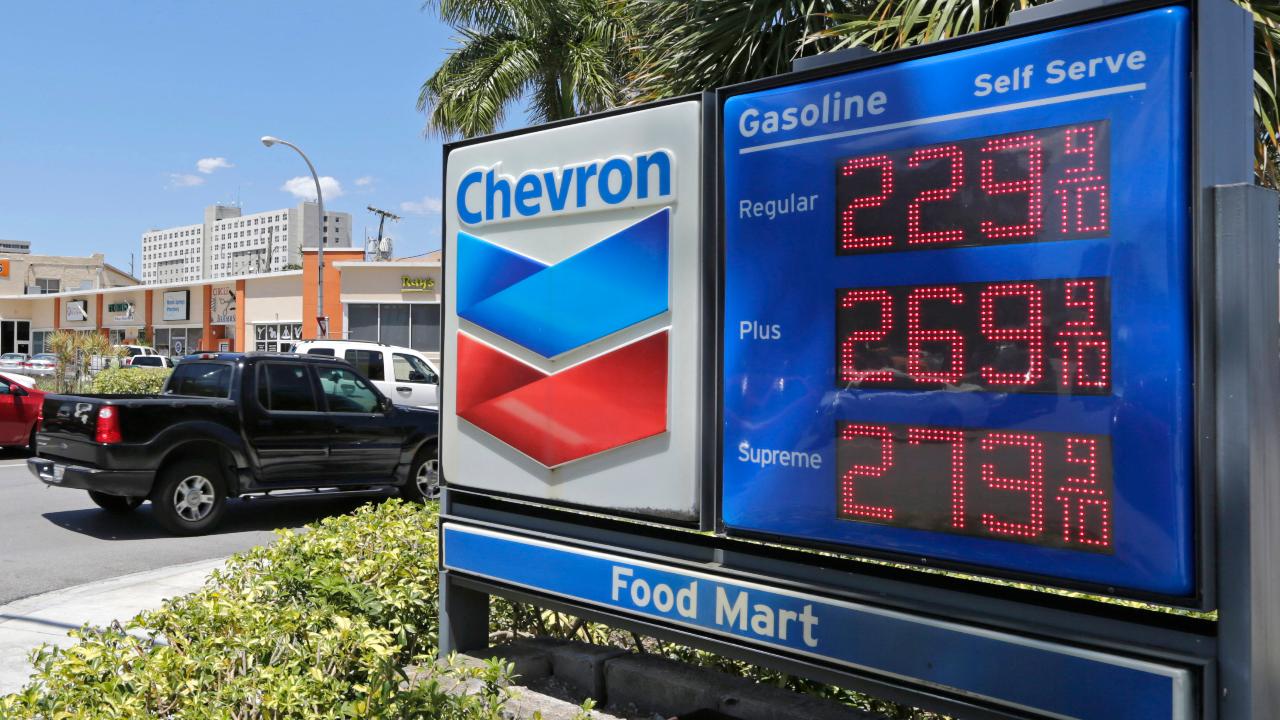5 things to know about Exxon Mobil, the world's largest public oil company
Whether they “put a tiger in their tank” or filled up under the gaze of a red pegasus, there’s a good chance many drivers have gotten to where they’re going using Exxon Mobil’s gas.
Exxon Mobil Corporation, which frequently goes by the name ExxonMobil, has a long history dating back to the early days of American oil prospecting and kerosene production.
Here are five things to know about the company today:
Size
Exxon Mobil is the world’s largest publicly traded oil and gas company.
The Irving, Texas-based company operates on six continents and in most countries. Its numerous business divisions span across the discovery, extraction, refining and retail sale of oil and natural gas.
Exxon Mobil is also one of the world’s largest chemical manufacturers, making products like synthetic rubbers, industrial alcohols and solvents.
The company employs about 71,000 people.
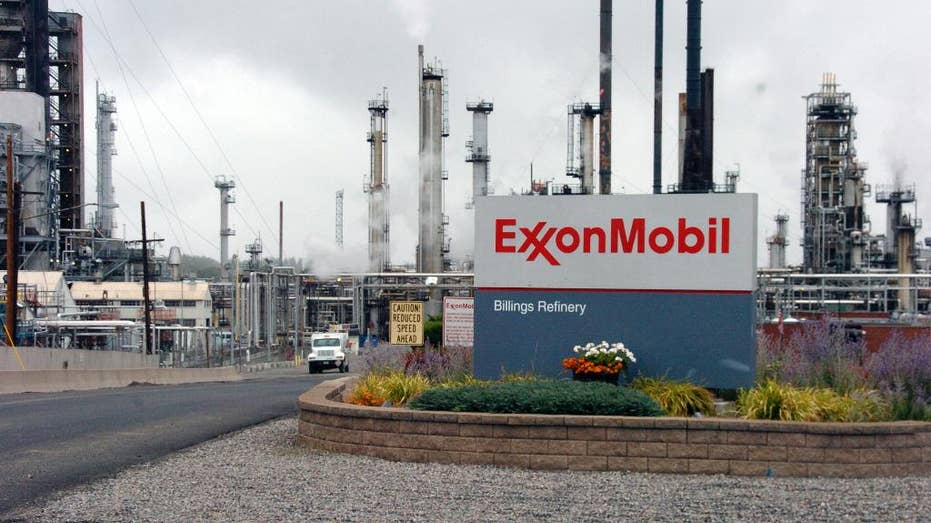
FILE - This Wednesday, Sept. 21, 2016, file photo shows Exxon Mobil's Billings Refinery in Billings, Mont. Exxon Mobil Corp. is reporting fourth-quarter profit of $1.68 billion on Tuesday, Jan. 31, 2017. (AP Photo/Matthew Brown, File)
Finances
Exxon Mobil’s market cap peaked at $527.2 billion on Oct. 18, 2007.
Today, the company is ranked in the No. 2 position on the Fortune 500 list, with $290 billion in revenue last year.
Exxon Mobil has been investing in Texas’ Permian Basin. As a result, it said its capital and exploration expenditures last quarter were up 22 percent from the year before, but the region has also helped boost liquids production by 8 percent.
GET FOX BUSINESS ON THE GO BY CLICKING HERE
The company is listed as XOM on the New York Stock Exchange.
| Ticker | Security | Last | Change | Change % |
|---|---|---|---|---|
| XOM | EXXON MOBIL CORP. | 151.13 | +2.10 | +1.41% |
Leadership
Darren Woods is Exxon Mobil’s chairman and CEO.
Woods has been with Exxon since 1992. He worked in a variety of assignments with the company before being appointed vice president of ExxonMobil Chemical Company in 2005. In 2008, he became ExxonMobil Refining and Supply Company’s director of refining for Europe, Africa and the Middle East. He became the company’s vice president of supply and transportation in 2010. He became president of Exxon Mobil in 2016 and took over as CEO in 2017 after Rex Tillerson left to become secretary of state in President Trump’s administration.
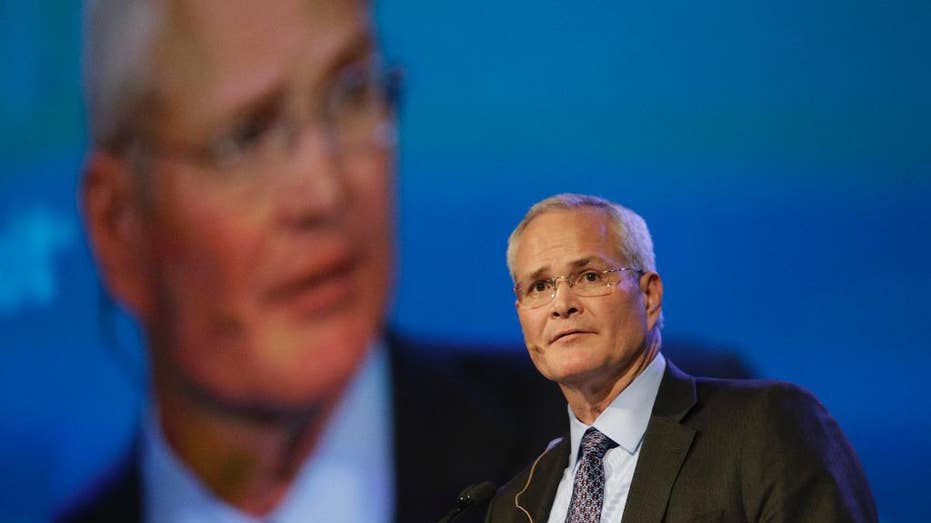
Darren Woods, Exxon Mobil CEO, speaks during CERAWeek at the Hilton Americas,Monday, March 6, 2017, in Houston. (Melissa Phillip/Houston Chronicle via AP)
The company also has a 10-member board of directors. It includes CEOs of companies like Merck and MetLife, as well as former CEOs of Johnson & Johnson, PepsiCo, IBM and Caterpillar.
History
Industrialist John D. Rockefeller started Standard Oil Company in 1870. The business focused on kerosene in its early years.
In 1911, an anti-trust ruling broke up Standard Oil into 34 companies, including what would eventually become Mobil and Exxon — in 1966 and 1972, respectively.
As competitors, the companies spent decades growing, acquiring other businesses, improving techniques and developing new synthetics.
Exxon made headlines around the world in 1989 when the Exxon Valdez supertanker ran aground in the Prince William Sound in Alaska. The equivalent of hundreds of thousands of barrels of oil spilled into the water. The cleanup took years and cost billions of dollars, and the company says it has made changes to prevent a similar accident from happening.
Mobil and Exxon merged 10 years later, in what was then the largest corporate merger ever. The combined Exxon Mobil became the largest oil company and one of the overall largest businesses in the world.
As of 2008, there were about 12,000 Exxon and Mobil gas stations in the U.S., but most were owned by branded distributors. The company said it would sell its remaining stations over several years.
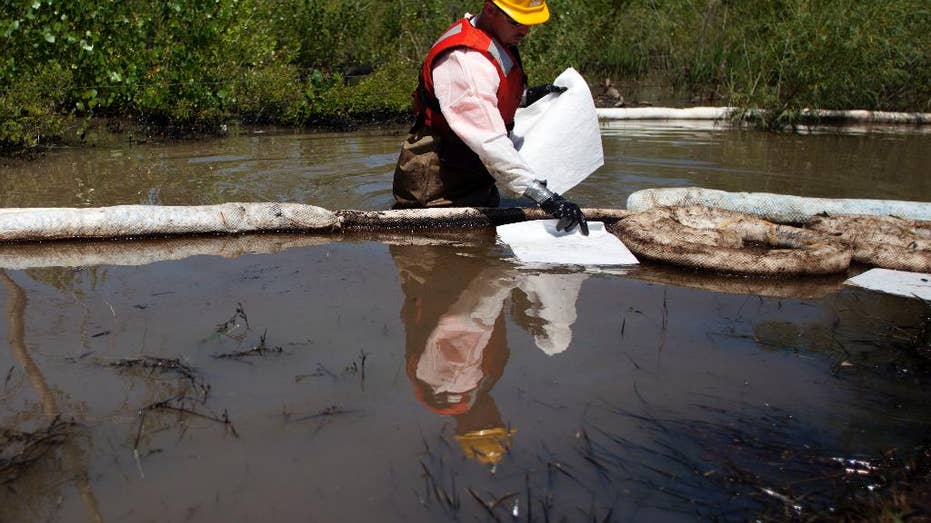
FILE - In this July 6, 2011, file photo, cleanup workers use oil absorbent materials along side the Yellowstone River in Laurel, Mont., to clean up an oil spill. Exxon Mobil Corporation has agreed to pay about $12 million for damages caused by the 20
Hot issues
Exxon Mobil announced in 2018 that it would invest $50 billion over five years to expand its business in the U.S. The company said it will create thousands of jobs as it expands existing operations and adds new infrastructure and manufacturing in areas like Texas and New Mexico.
In its last quarterly earnings report, Exxon Mobil said it was also preparing to start a new project in Guyana. The company estimates the development will yield more than 6 billion barrels of oil.
In an “Outlook for Energy” report Exxon Mobil published earlier in 2019, the company said it expects climate change and increasing demand in developing parts of the world will help wind and solar energy grow significantly, but they will still account for the smallest portion of overall energy sources
Traditional energy sources like oil and natural gas will “remain important energy sources and require significant investment,” Exxon Mobil wrote in the report. Natural gas will grow the most, and oil will continue as the world’s top energy source thanks to commercial transportation and the chemicals industry, together accounting for more than half of global energy, the company predicted.
Still, the company is embracing change in the industry. Exxon Mobil recently announced a partnership to work on technology it said can remove carbon dioxide from emissions sources. The company has also pledged to invest as much as $100 million on lower-emissions research and development with the U.S. Department of Energy’s National Renewable Energy Laboratory and National Energy Technology Laboratory.
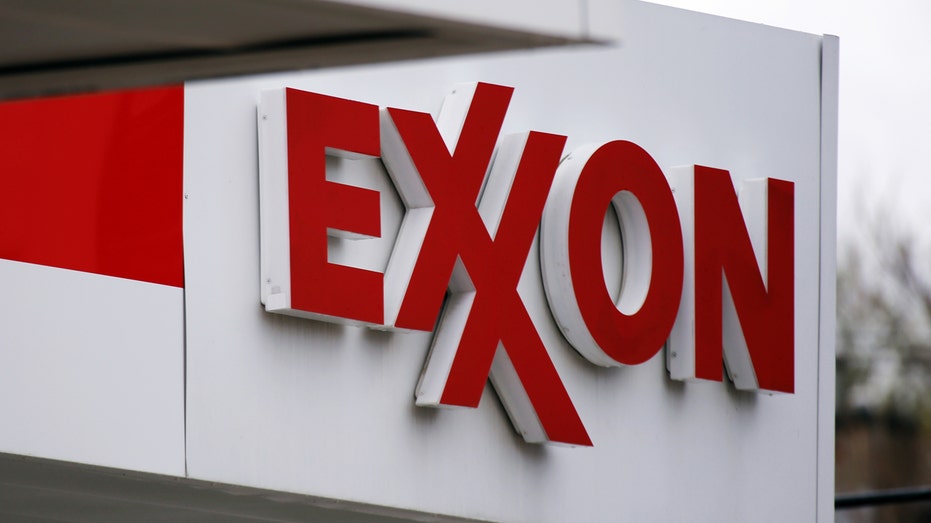
This April 29, 2014, file photo, shows an Exxon sign at a Exxon gas station in Carnegie, Pa.




















